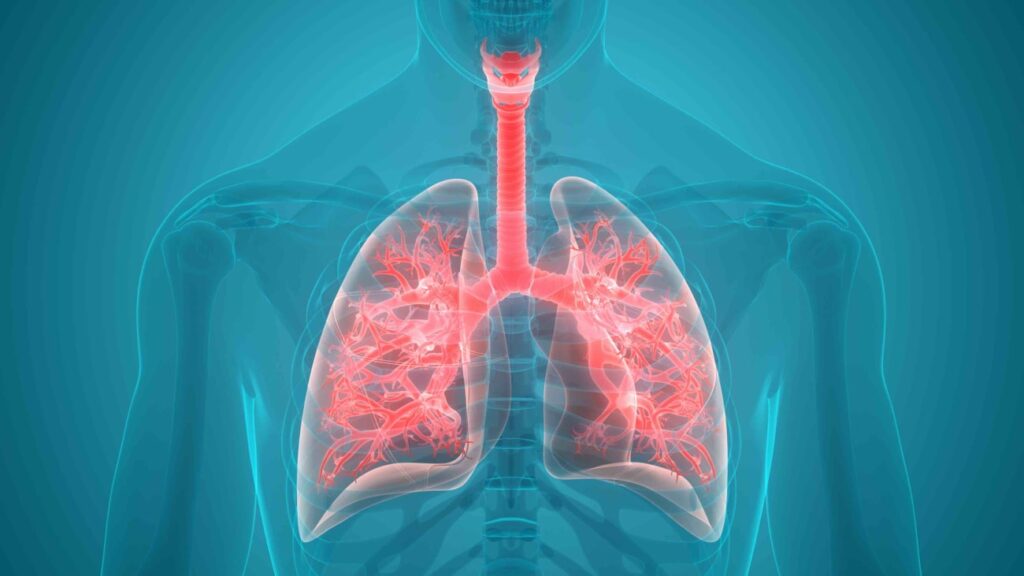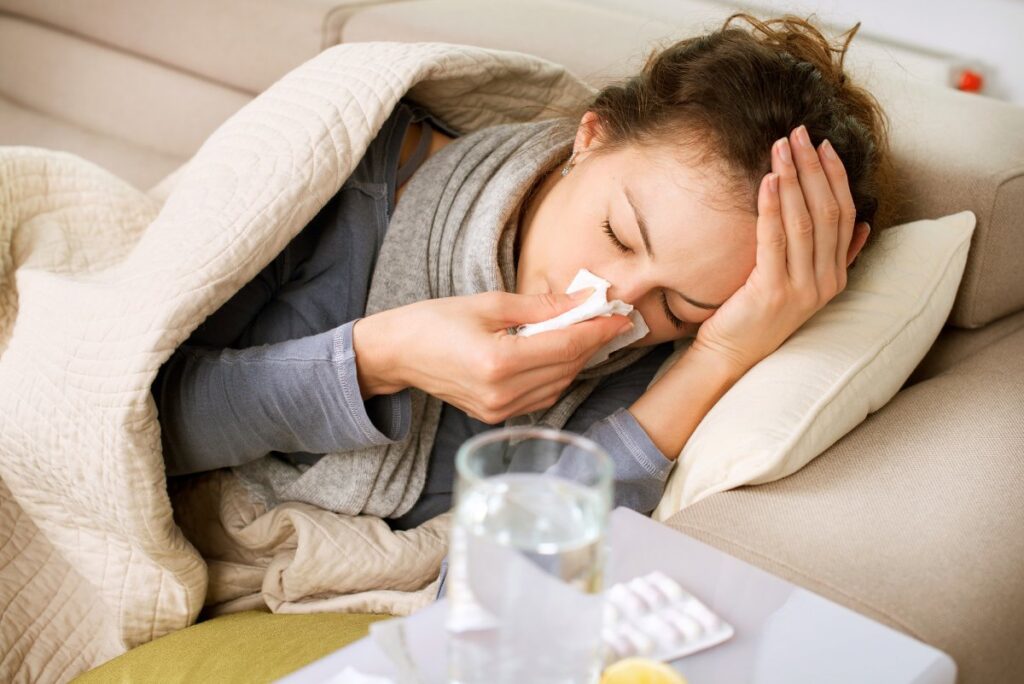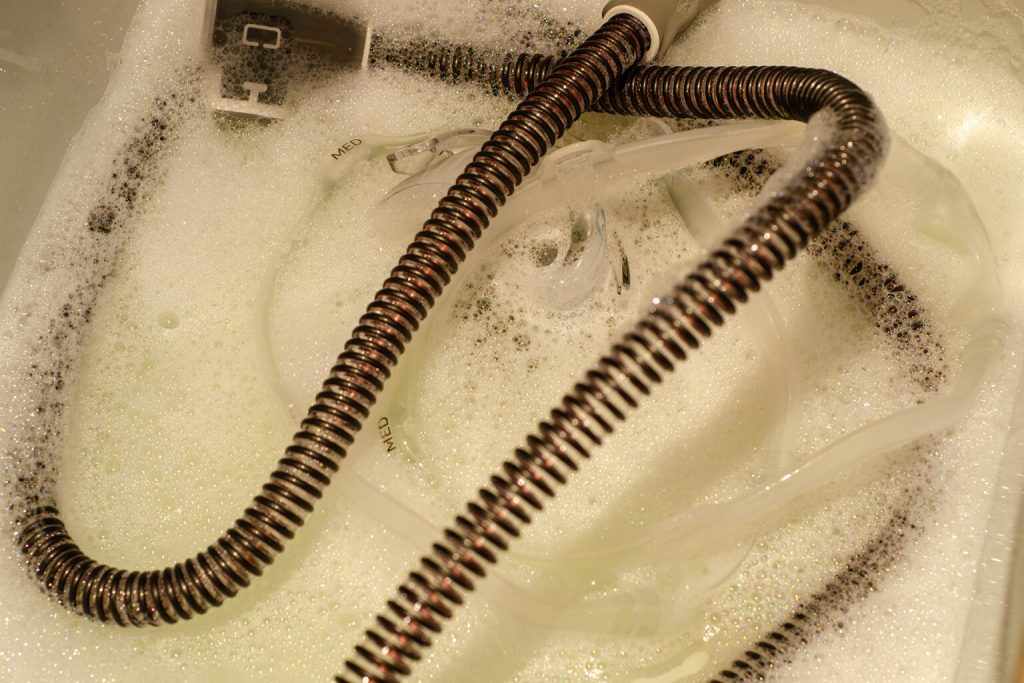Last Updated on October 26, 2021
When you have a virus or bacterial infection getting into your lungs, you may be having pneumonia. This is a deadly condition. In case your body cannot combat the infection, this can lead to fatalities. Why? When a person has pneumonia, fluid usually accumulates in the lungs. This can cause breathing and swelling problems.
Generally, sleep apnea increases the risk of pneumonia infection because the patient is likely to suck their throat-fluid into their lungs whenever he/ she has breathing problems. Moreover, the repeated interruptions in sleep (for sleep apnea sufferers) generally weaken the immune system. Thus there are potential risks for contracting pneumonia.
Can You Contract Pneumonia from Your CPAP Machine?
No doubt, using your CPAP machine can raise the risk of contracting pneumonia. Why? If the CPAP machine is not well-cleaned, it can transfer bacteria and viruses into your lungs. This can heighen the chances of developing an upper respiratory tract infection. In turn, this leads to pneumonia. Indeed, even some ‘ordinary’ diseases like the common cold can develop into pneumonia in this situation.
Hence, users of the CPAP machine should make sure they take precautions to reduce the risk of contracting pneumonia. They can do this by consistently using their machine in the recommended way. They can further do this by keeping the associated equipment- like the mask and the hose- ever clean.
How the CPAP Machine Connects to Pneumonia, Mold, and Fungus
If you want to make your CPAP therapy warm and moist, you must use heated tubing and a heated humidifier. Unfortunately, while these devices help to deal with breathing issues and prevent dry mouth, they also attract organisms that thrive in a warm, humid atmosphere. This is especially true if it’s not appropriately dried every time it’s used. Yes, mold, fungus, and yeast really love this kind of atmosphere.
Further, you can have harmful mold breeding and growing within the CPAP equipment. This kind of situation is quite threatening to health. These germs can also worsen your airway and lung issues and cause a bad cough. It may also lead to other conditions- like pneumonia and bronchitis.
Moreover, the CPAP machine air pressure can blow these harmful pathogens right into your lungs. However, you shouldn’t worry- this rarely happens. According to studies carried out by the subject experts, the chances of this kind of occurrence are extremely low; all you need to do is maintain your CPAP equipment correctly.
Never leave unused water lying within the machine for a long time. If you leave the machine dry, you’ll drastically reduce the chance of mold development.
Should I Use a CPAP Machine If I Have Pneumonia?
Some have sincerely asked the above question. Well, the answer is simple: Well, it all depends on how severe your condition is. Actually, it’s advisable to consult your doctor to know whether or not it’s okay to use your CPAP machine if you suffer from pneumonia.
Nevertheless, it’s crucial to ensure your CPAP machine is cleaned thoroughly while you are sick and afterward if you have pneumonia. Note that your immunity is generally compromised when you suffer from pneumonia. In such a case, the situation can get worse if you inhale bacteria and viruses.
How Can You Reduce the Risk of Contracting Pneumonia?
It’s possible to avoid dealing with the risk of other Illness -as respects the subject of pneumonia. Yes, you can treat your sleep apnea condition while using the CPAP machine and reduce the chances of contracting pneumonia- all at the same time.
Consider the following suggestions:
Check the Machine and Filter Condition
Most of those who develop CPAP and pneumonia complications face this challenge as a result of using a dirty machine and dirty filters.
Start by checking out your machine and filters condition. For detailed instructions, you may consult the product manual or make inquiries online. NB: It’s certainly a great idea to use a specialized CPAP cleaner that can properly sanitize your CPAP equipment.
Use Distilled Water
You can considerably reduce the risk of infection by putting distilled water in the humidifier. It’s advisable to use purified water if the local water supply isn’t good enough.
You might find that tap water contains harmful particles and other organisms that can make your condition worse. In addition, distilled water can help prevent minerals from piling up inside the water chamber.
Never Allow the Water to Accumulate
If you leave the CPAP machine idle for a long time, mold can start forming. Pour the water every time you use the CPAP machine; this will ensure it doesn’t happen. Clean the humidifier water tank thoroughly and let it dry completely.
Replace Your Supplies
It’s wise to replace your CPAP supplies regularly. Make sure you switch out your machine filters according to the manufacturer’s recommendations. Doing this will significantly reduce the bacteria spread.
Never Share Your CPAP Machine
This is quite important. The other person may be suffering an ailment. Also, never buy or accept a second-hand CPAP machine, mask, and tubing.



